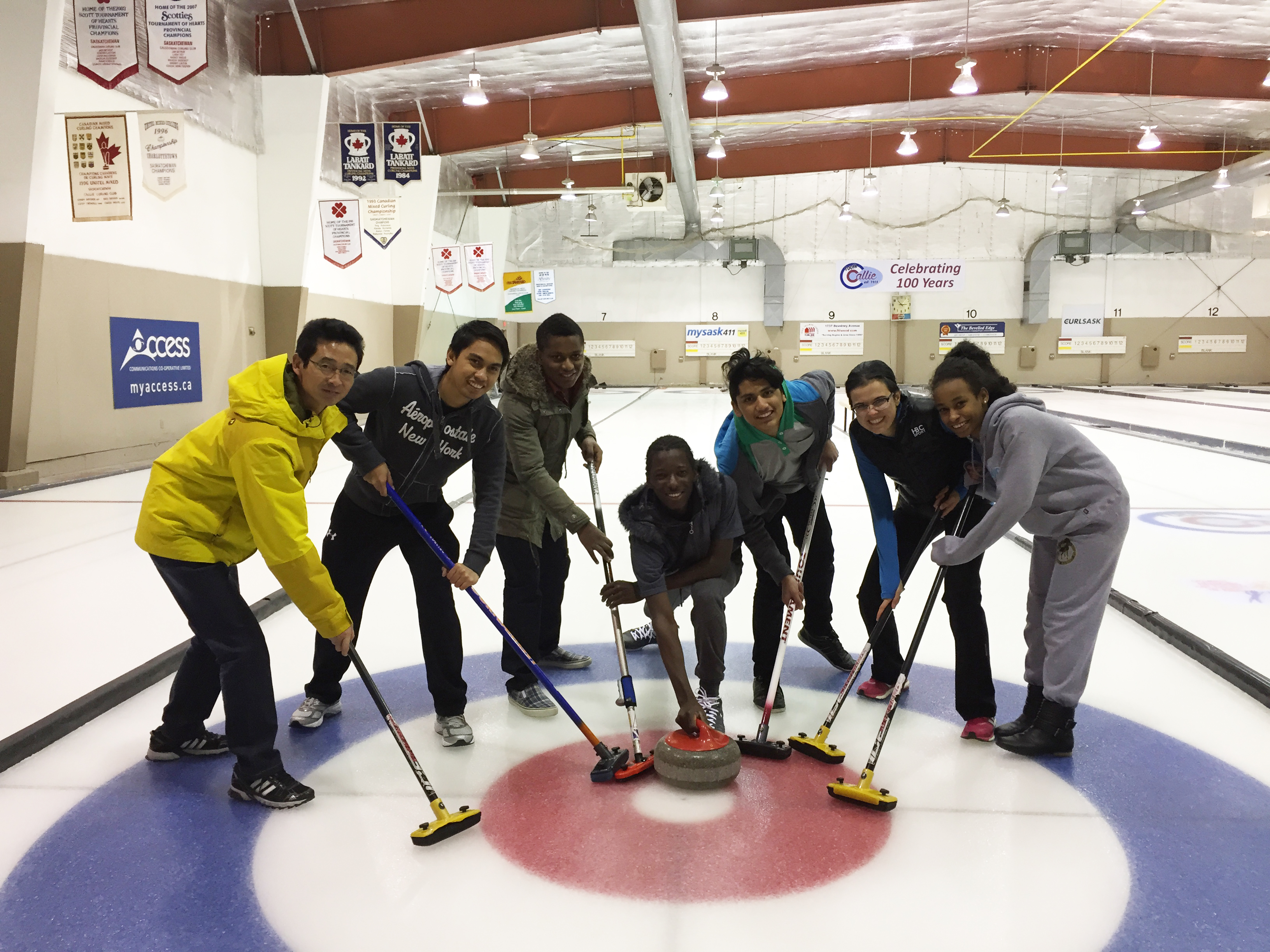Create partnerships with groups already connected to newcomers.
Search out settlement organizations, areas offering English language classes, libraries, cultural centres, alternative sports groups, etc. and offer to provide information sessions to clients there. Better yet, offer free tickets to attend events so that newcomers can experience firsthand, the sport or event you are recruiting for. Also ask if they will distribute programming and registration information to their diverse client/customer base.
Accommodation of more "novice" levels, especially for older ages and even adults.
It is a safe assumption that most Canadians at least have a base level of comfort on skates for example. And if you don’t, good luck picking up the sport of hockey at the age of 15! Many individuals moving here from different Countries have never even been on ice before. But given the opportunity to learn, they could become very talented at our “Canadian” activities. If you want t o capture this group in your programming, you need to offer more beginner lessons and instruction beyond just for pre-school aged children.
o capture this group in your programming, you need to offer more beginner lessons and instruction beyond just for pre-school aged children.
Maintain up to date online and social media resources.
Many long-term residents of a particular community rely on word of mouth for their programming information. New residents to a community do not have these relationships built up yet, and rely on only search engines and posts as their major means of gathering information. If your group’s online activity calendar is out of date for example, or you are not regularly updating your organization’s facebook page, Twitter, etc. you have likely just lost a potential newcomer participant.
Create options that include the whole family.
Depending on how recently they arrived in Canada, newcomer families do not want to be divided into separate programming. Culturally speaking, many other societies do a lot more free play as a family and regardless of age for example. The idea of driving one child to hockey in one arena, the other child to dance across town and then the third child back to the same arena but at a different time because they’re in a different age group, has become quite acceptable to many Canadians. This concept however, is not something that many newcomer families are accustomed to or even understand. Furthermore, depending on how long they’ve been in Canada, newcomer families do not want to be divided and tend to want to do more things together. Do you have program options that are not age-specific? If not, why not consider running family soccer sessions for example. In addition to the age-specific ones that are still quite popular in Canadian systems.
Ensure promotion information is clear and includes an explanation of rules and competencies required.
Do not assume that all people picking up your brochure have base knowledge of the program you’re trying to promote. Including a brief explanation of these things helps to ensure newcomers are aware of what the program has to offer as well as the expectations on participants.
Have your information translated into most popular languages.
Imagine moving to a new Country and every brochure, every poster, every website is in that Country’s official language - a language you don’t understand! And then imagine seeing one written in English. How comforting it would feel and how inclined would you be to read that brochure, poster or website information.
Provide interpretation at information and registration sessions.
If you are able to round up interpreters in your community who can be of assistance at registration and information sessions, there is a much higher likelihood that newcomers with language barriers will show up and register. Furthermore, you can ensure that participants understand the information they are signing off on and the requirements and commitments that they are agreeing to.
Match a newcomer family/individual with someone who can mentor them during the beginning stages.
This can be as simple as introducing families who are registered for the same activity and live near each other. This way, they can possibly carpool to activities or at the very least, remind each other of upcoming events, etc.
Offer separate male and female leagues.
Many other cultural groups are not as gender inclusive as Canadians are. This does not necessarily mean they value one gender as any less than the other, but simply that males and females conduct certain activities separately. Sports for example, would be one of these areas. We’re not saying to conform entirely to this way of thinking and abolish coed activities. But perhaps adding a separate option for males and females would encourage participation among groups who would normally stay away from activities which do not provide this option.
Be mindful of holidays/schedules that are recognized and important for participants coming from other countries.
For example, an important sport playoff or festival would never be scheduled to run on Christmas day in Canada, as we know this to be a day for family and rest. What about scheduling the same activity during Ramadan though. If your star player is Muslim, you will likely be playing without your all-star at this time. Or if you are trying to reach out to immigrant families from India or Pakistan for example, but your program runs the same time as the local cricket league, you are likely to not see the registration numbers you’re looking for.
Laura Strong
Regina Open Door Society
For more information about the Regina Open Door Society, visit their website.
This article was previously featured in the Winter 2016 issue of DIRECTION Magazine. Original publication date: December 12, 2016.



